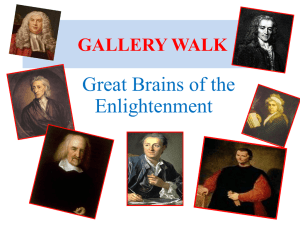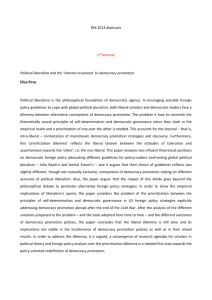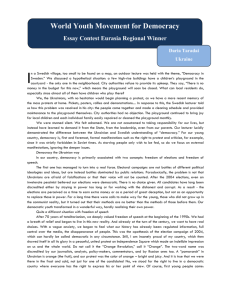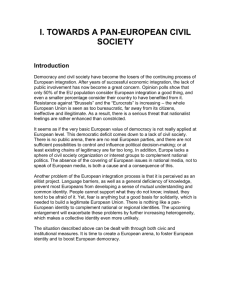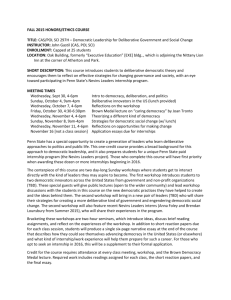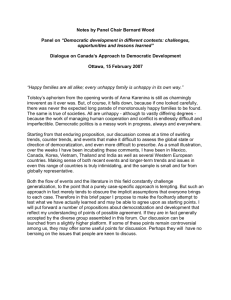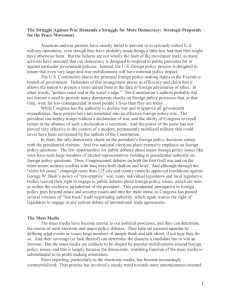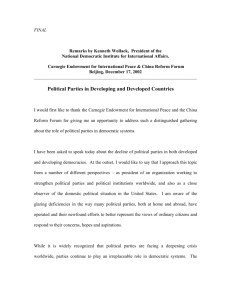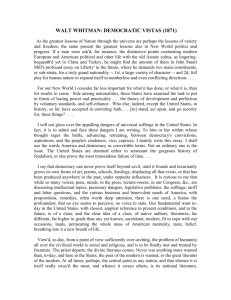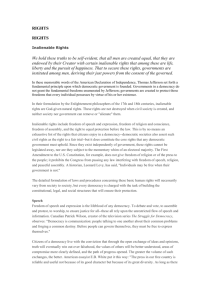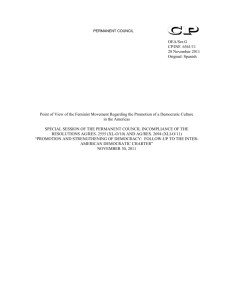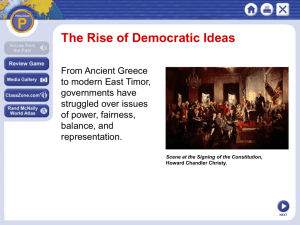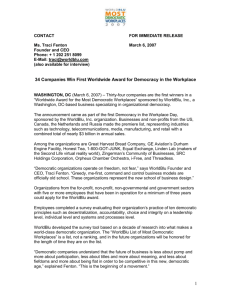Unit 1 Study Guide
advertisement
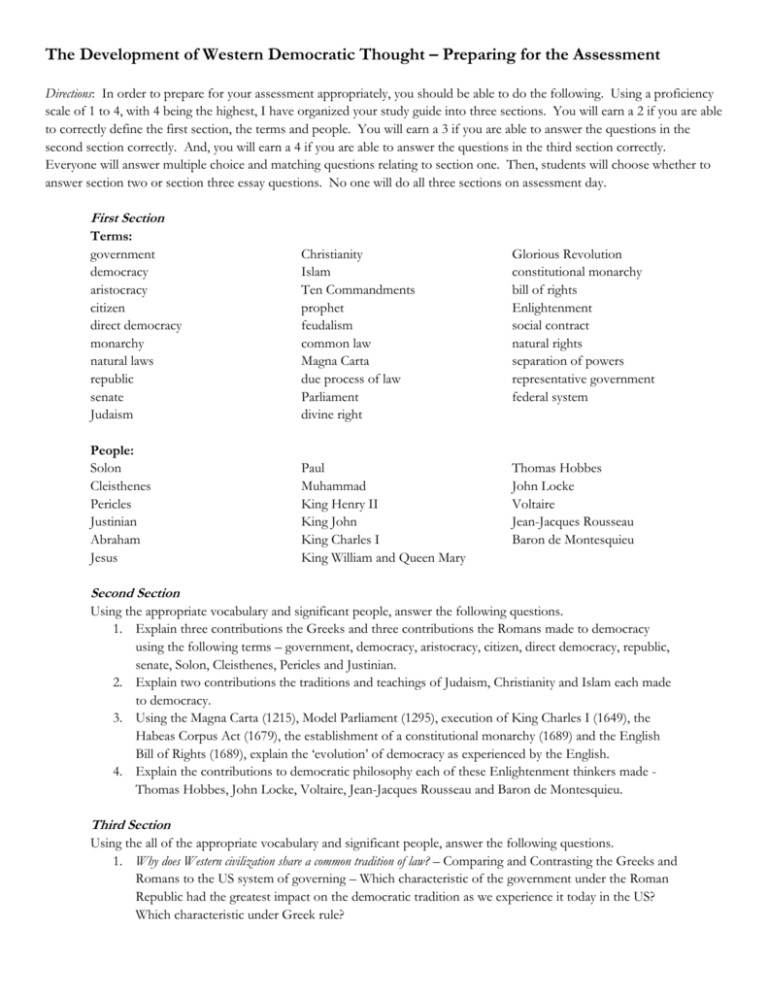
The Development of Western Democratic Thought – Preparing for the Assessment Directions: In order to prepare for your assessment appropriately, you should be able to do the following. Using a proficiency scale of 1 to 4, with 4 being the highest, I have organized your study guide into three sections. You will earn a 2 if you are able to correctly define the first section, the terms and people. You will earn a 3 if you are able to answer the questions in the second section correctly. And, you will earn a 4 if you are able to answer the questions in the third section correctly. Everyone will answer multiple choice and matching questions relating to section one. Then, students will choose whether to answer section two or section three essay questions. No one will do all three sections on assessment day. First Section Terms: government democracy aristocracy citizen direct democracy monarchy natural laws republic senate Judaism Christianity Islam Ten Commandments prophet feudalism common law Magna Carta due process of law Parliament divine right Glorious Revolution constitutional monarchy bill of rights Enlightenment social contract natural rights separation of powers representative government federal system People: Solon Cleisthenes Pericles Justinian Abraham Jesus Paul Muhammad King Henry II King John King Charles I King William and Queen Mary Thomas Hobbes John Locke Voltaire Jean-Jacques Rousseau Baron de Montesquieu Second Section Using the appropriate vocabulary and significant people, answer the following questions. 1. Explain three contributions the Greeks and three contributions the Romans made to democracy using the following terms – government, democracy, aristocracy, citizen, direct democracy, republic, senate, Solon, Cleisthenes, Pericles and Justinian. 2. Explain two contributions the traditions and teachings of Judaism, Christianity and Islam each made to democracy. 3. Using the Magna Carta (1215), Model Parliament (1295), execution of King Charles I (1649), the Habeas Corpus Act (1679), the establishment of a constitutional monarchy (1689) and the English Bill of Rights (1689), explain the ‘evolution’ of democracy as experienced by the English. 4. Explain the contributions to democratic philosophy each of these Enlightenment thinkers made Thomas Hobbes, John Locke, Voltaire, Jean-Jacques Rousseau and Baron de Montesquieu. Third Section Using the all of the appropriate vocabulary and significant people, answer the following questions. 1. Why does Western civilization share a common tradition of law? – Comparing and Contrasting the Greeks and Romans to the US system of governing – Which characteristic of the government under the Roman Republic had the greatest impact on the democratic tradition as we experience it today in the US? Which characteristic under Greek rule? Think about: the control of power by citizens, the separation of government branches and the regard for written law 2. How does religious tradition impact secular/civil law? – While Thomas Jefferson famously wrote of a “wall of separation between church and state,” religious tradition obviously influenced the writing of government laws. How does a democratic government, like the US, balance that tradition? Think about: First Amendment, specific US laws based on the Ten Commandments 3. How does democratic law differ from tyrannical? – The Enlightenment thinkers wrote about the different ways they thought society should be governed. They were influenced by the time and place in which they lived and the natural laws of the Scientific Revolution they studied. Briefly explain how each of the five ‘thinkers’ were influenced by their experience and what philosophical conclusions they came to because of it. For example: Thomas Hobbes lived during the upheaval of Cromwell and the Commonwealth. Voltaire lived in France during the time of divine and absolute monarchies.
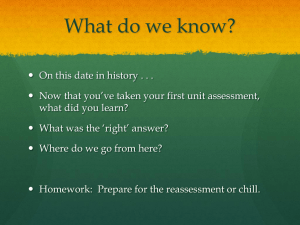
![“The Progress of invention is really a threat [to monarchy]. Whenever](http://s2.studylib.net/store/data/005328855_1-dcf2226918c1b7efad661cb19485529d-300x300.png)



